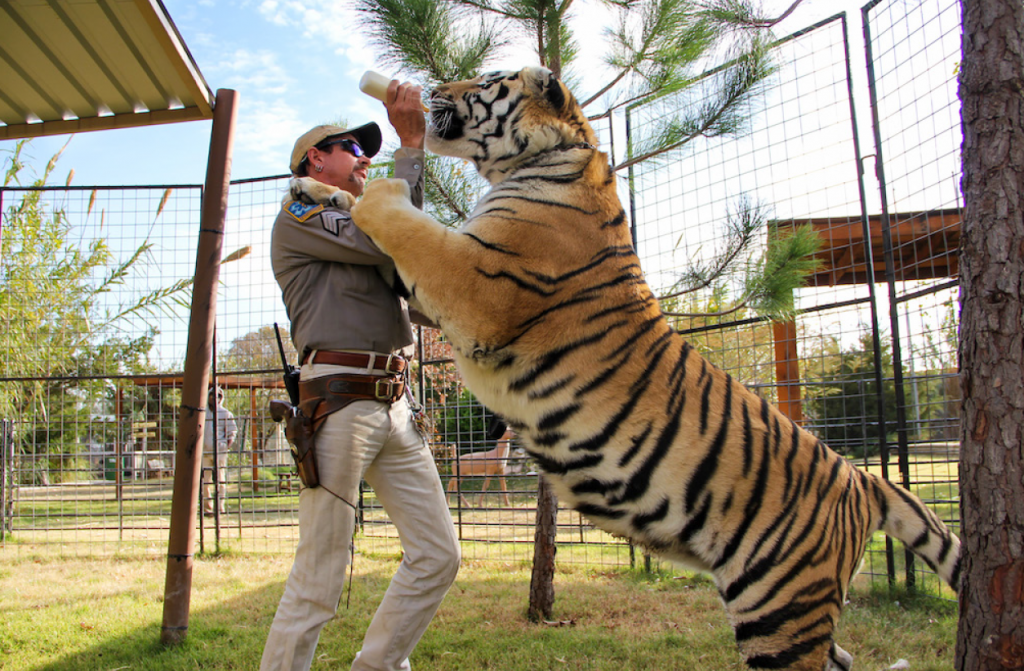Documentary film has become a popular form of entertainment, and a meaningful source of information—and misinformation—about the world. And yet it lacks an ecology like the one surrounding mainstream news coverage about politics and economics, in which public scrutiny, through journalism, on assertions and expressions provides accountability—the network of accountability well-mapped by Benkler, Faris and Roberts (2019). It also lacks the intimate (sometimes disturbingly intimate) relationship between critic and artist in the arts world, or even the now-fraying relationship between critic and pop culture producers in the fiction film environment.

Tiger King has many elements of reality shows, but Netflix calls it a documentary series.
Documentary filmmaking is thus on the informational frontier, without expectations or norms for responsible conduct. And yet it is entertainment with a claim to significance, to interpreting real life and giving meaning to the deluge of data we swim in every day. Without a vibrant ecology of information circulation, it can easily become as much part of the problem of dis/misinformation as a solution for it.
How does journalism currently work to hold documentary filmmaking accountable for its claim to be a truthful, good-faith portrait of something real in the world? What deficits exist in this area and why? What support and interventions would maximize its potential to bolster accountability to the viewing public in this vitally important form?

 Patricia Aufderheide is University Professor in the School of Communication at American University She is the author of, among other books, Documentary Film: A Very Short Introduction (Oxford University Press), and co-author with Peter Jaszi of Reclaiming Fair Use: How to Put Balance Back in Copyright (University of Chicago Press). She has served on the board of Kartemquin Films, and is a board member of the Independent Television Service.
Patricia Aufderheide is University Professor in the School of Communication at American University She is the author of, among other books, Documentary Film: A Very Short Introduction (Oxford University Press), and co-author with Peter Jaszi of Reclaiming Fair Use: How to Put Balance Back in Copyright (University of Chicago Press). She has served on the board of Kartemquin Films, and is a board member of the Independent Television Service. Marissa Woods is a filmmaker and arts researcher. She is completing a Master of Fine Arts in Film & Media Arts at American University’s School of Communication.
Marissa Woods is a filmmaker and arts researcher. She is completing a Master of Fine Arts in Film & Media Arts at American University’s School of Communication.
